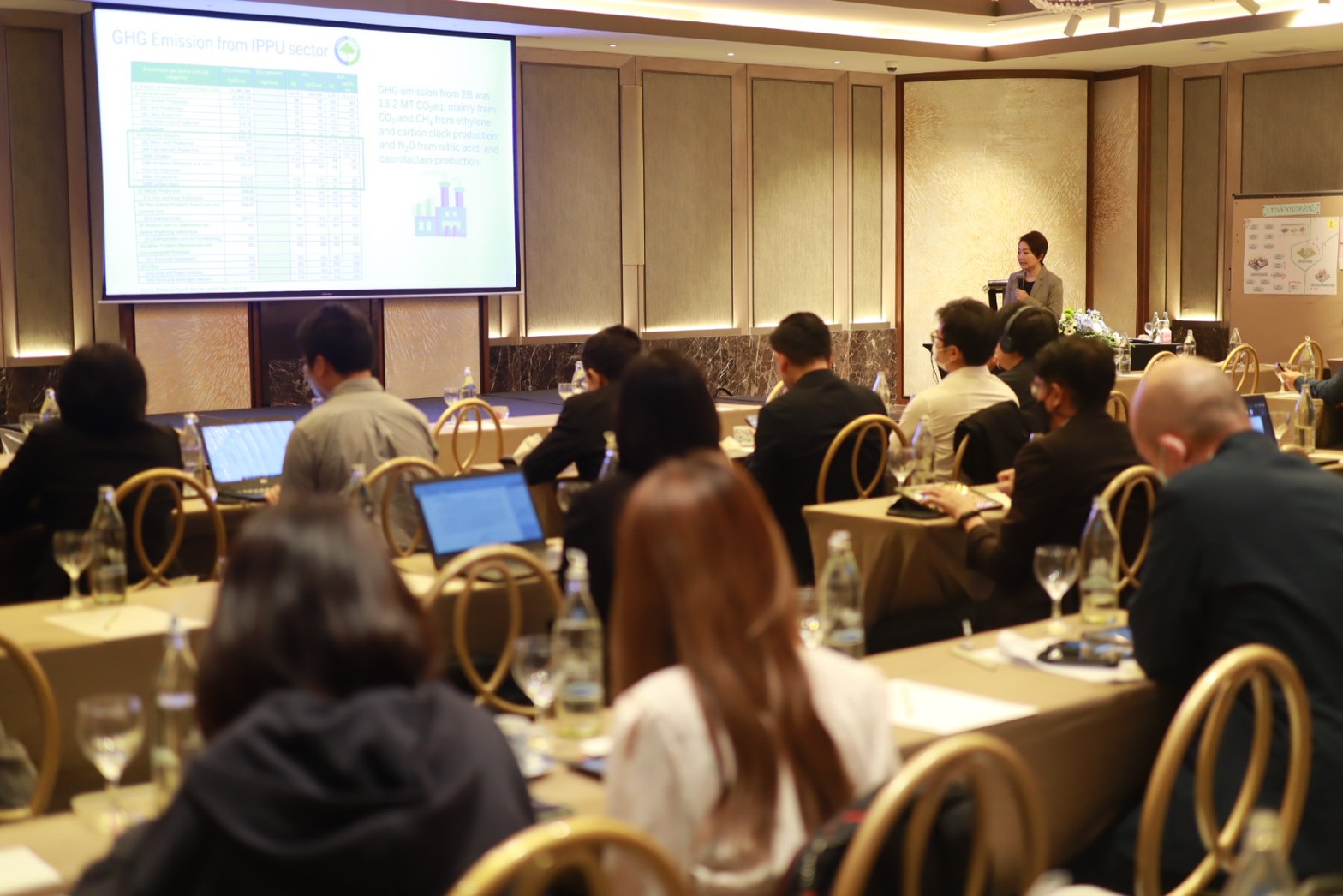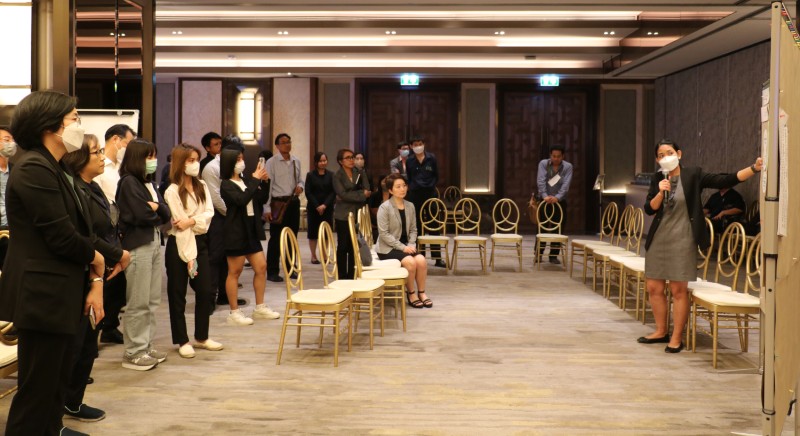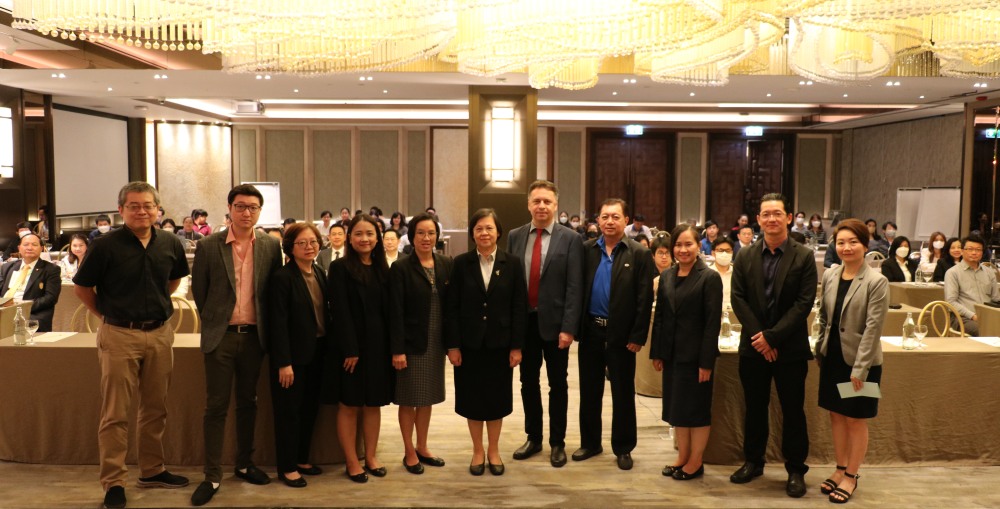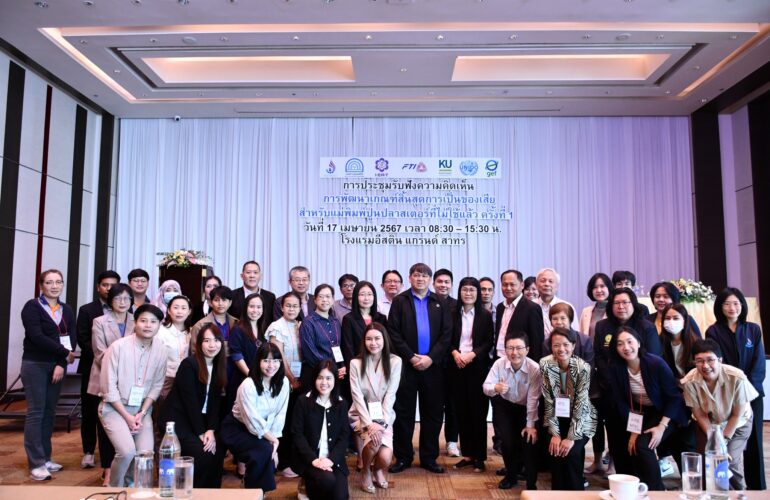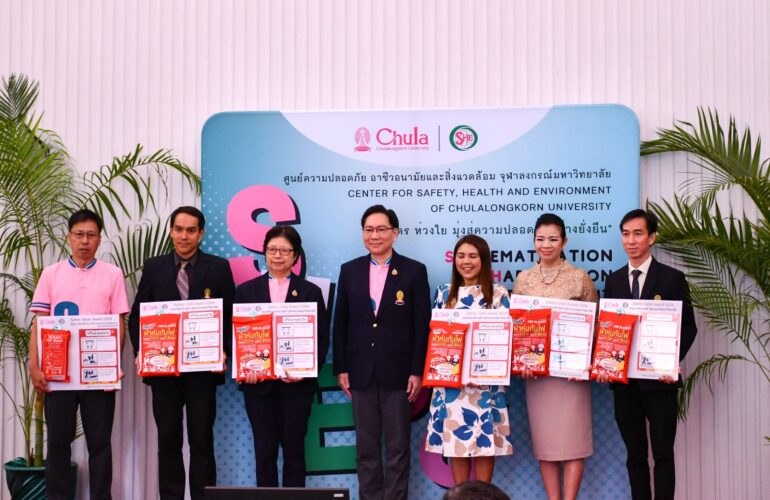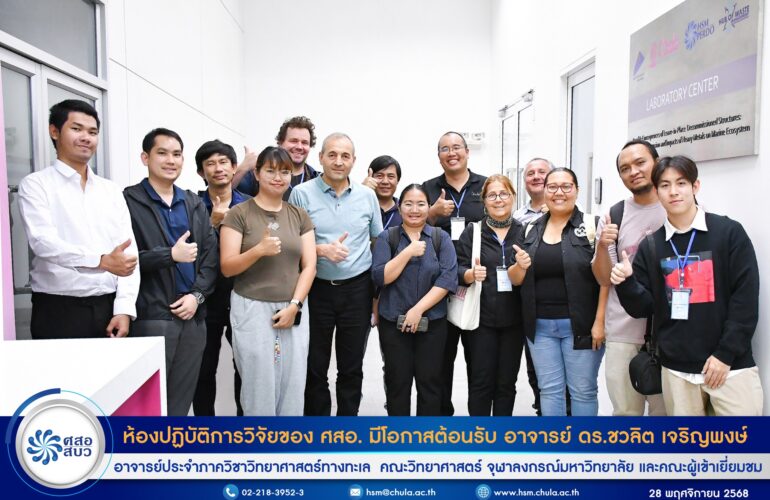เมื่อวันพุธที่ 20 กันยายนที่ผ่านมา โครงการเพื่อส่งเสริมอุตสาหกรรมเคมีที่เป็นมิตรกับสิ่งแวดล้อมอย่างยั่งยืน (Climate Action Programme for the Chemical Industry: CAPCI) ได้จัดการประชุมกรอบการพัฒนาแผนที่นำทางอุตสาหกรรมเคมีที่ยั่งยืนและเป็นมิตรต่อสภาพภูมิอากาศของประเทศไทย โดยมีวัตถุประสงค์เพื่อแลกเปลี่ยนข้อมูลด้านนโยบาย สถานการณ์ และการดำเนินงานด้านการเปลี่ยนแปลงสภาพภูมิอากาศ ที่เกี่ยวข้องกับอุตสาหกรรมเคมี พร้อมนำเสนอร่างกรอบการจัดทำแผนที่นำทาง รวมทั้งรับฟังความเห็นจากภาคเอกชนและหน่วยงานที่เกี่ยวข้องเกี่ยวกับกรอบและแนวทางในการจัดทำแผนที่นำทาง รวมทั้งหารือถึงศักยภาพ ความต้องการการสนับสนุนในการลดก๊าซเรือนกระจกทั้งในส่วนของมาตรการในภาค IPPU ภาคพลังงาน และภาคของเสีย โดยข้อมูลที่ได้จากการประชุมจะถูกนำมาพิจารณาเพื่อปรับปรุงร่างกรอบและสาระในแผนที่นำทางฯ ซึ่งกำหนดให้มีการรับฟังความคิดเห็นจากภาคส่วนที่เกี่ยวข้องต่อร่างแผนที่นำทางฉบับสมบูรณ์ในต้นปี พ.ศ. 2567
.
อุตสาหกรรมเคมีได้ชื่อว่าเป็นอุตสาหกรรมที่มีบทบาทสำคัญต่อระบบเศรษฐกิจของประเทศ เนื่องจากเป็นอุตสาหกรรมพื้นฐานสำหรับอุตสาหกรรมต่อเนื่องหลายประเภท จากข้อมูลบัญชีการปล่อยก๊าซเรือนกระจกของประเทศไทยในภาคกระบวนการอุตสาหกรรมและการใช้ผลิตภัณฑ์ (IPPU) ปี พ.ศ. 2562 ซึ่งเป็นปีล่าสุดที่มีการรายงานของประเทศไทยพบว่าอุตสาหกรรมเคมีมีการปล่อยก๊าซเรือนกระจกปริมาณ 13 ล้านตันคาร์บอนฯ คิดเป็นสัดส่วนประมาณร้อยละ 35 ของการปล่อยทั้งหมดในภาค IPPU
.
กรมโรงงานอุตสาหกรรมซึ่งเป็นหน่วยงานหลักในการขับเคลื่อนนโยบายด้านการเปลี่ยนแปลงสภาพภูมิอากาศของภาคอุตสาหกรรม โดยเฉพาะจากกระบวนการทางอุตสาหกรรมและการใช้ผลิตภัณฑ์รวมถึงการจัดการพลังงานและของเสียในภาคอุตสาหกรรมได้เล็งเห็นถึงความสำคัญของทั้งประเด็นปัญหาการเปลี่ยนแปลงสภาพภูมิอากาศและความสำคัญของอุตสาหกรรมเคมี จึงได้ร่วมกับองค์กรความร่วมมือระหว่างประเทศของเยอรมัน (GIZ) ในการดำเนินโครงการเพื่อส่งเสริมอุตสาหกรรมเคมีที่เป็นมิตรกับสิ่งแวดล้อมอย่างยั่งยืน (CAPCI) ซึ่งได้รับการสนับสนุนงบประมาณจากสหพันธ์สาธารณรัฐเยอรมนี เพื่อยกระดับศักยภาพการดำเนินการอุตสาหกรรมเคมีที่ยั่งยืนและปกป้องสภาพภูมิอากาศตั้งแต่ในส่วนของกระบวนการผลิต ตลอดทั้งห่วงโซ่มูลค่าของอุตสาหกรรม
.
การจัดทำแผนที่นำทางการขับเคลื่อนอุตสาหกรรมเคมีที่ยั่งยืนและเป็นมิตรต่อสภาพภูมิอากาศของประเทศไทย เป็นกิจกรรมส่วนหนึ่งภายใต้ความร่วมมือฯ โดยมีศูนย์ความเป็นเลิศด้านการจัดการสารและของเสียอันตราย จุฬาลงกรณ์มหาวิทยาลัย เป็นที่ปรึกษาโครงการฯ โดยตั้งเป้าให้แผนที่นำทางฉบับนี้เป็นตัวแทนและสะท้อนถึงวิสัยทัศน์และเป้าหมายร่วมกันของทุกภาคส่วนที่เกี่ยวข้องกับอุตสาหกรรมเคมี และสามารถนำไปปฏิบัติได้จริง โดยเฉพาะภาคเอกชนที่จะมีส่วนสำคัญในการขับเคลื่อนการดำเนินงานในระดับองค์กรต่อไป
.
ดาวน์โหลดเอกสารประกอบการประชุมฯ และผลการหารือจากการประชุมกลุ่มย่อยได้ที่นี่ https://www.thai-german-cooperation.info/…/Photodocumen…
.
.
.
The Climate Action Programme for the Chemical Industry (CAPCI) project conducted a framework meeting on 20 September 2023, in order to develop a national roadmap for sustainable chemicals and climate change. The objective is to share information regarding climate change policies, current situations, and implementation plans related to the chemical industry, providing an outline for the draft roadmap, including exchanging perspectives with key players in the private sector and associated agencies, as well as the potential mitigation actions and need for assistance in mitigating greenhouse gas emissions through IPPU, energy, and waste. By using the information obtained from the meeting, HSM will prepare the final draft roadmap to be ready for final consultation around the beginning of 2024.
.
The chemical industry is regarded as a significant component of the country’s economic system. Because it is the foundation for many downstream industries. According to Thailand’s greenhouse gas emissions accounting statistics in IPPU sector in 2019, the most recent year of reporting in Thailand, the chemical industry had 13 million tCO2eq of greenhouse gas emissions. This accounts for roughly 35% of overall emissions in the IPPU industry.
.
Department of Industrial Works, which is the primary agency in charge of pushing policy on climate change in the industrial sector, particularly from IPPU, as well as energy and waste management in the industrial sector, recognises the significance of these challenges. The importance of the chemical industry in the face of climate change. Hence, in cooperation with GIZ, it is implementing the CAPCI project, which has received financing from the Federal Republic of Germany to boost its potential to operate a sustainable and climate-friendly chemical industry from the manufacturing process all the way through the value chain.
.
Therefore, developing a national roadmap for sustainable chemical and climate change is one of the activities associated with the collaboration, as is the technical assistance from the Centre of Excellence for Hazardous Waste Management (HSM) at Chulalongkorn University. This roadmap will represent and reflect the joint vision and goals of all stakeholders, especially industry, which will play an essential role in driving organisational levels.
.
Input presentations and the summary of key discussions can be downloaded here: https://www.thai-german-cooperation.info/…/Photodocumen…
